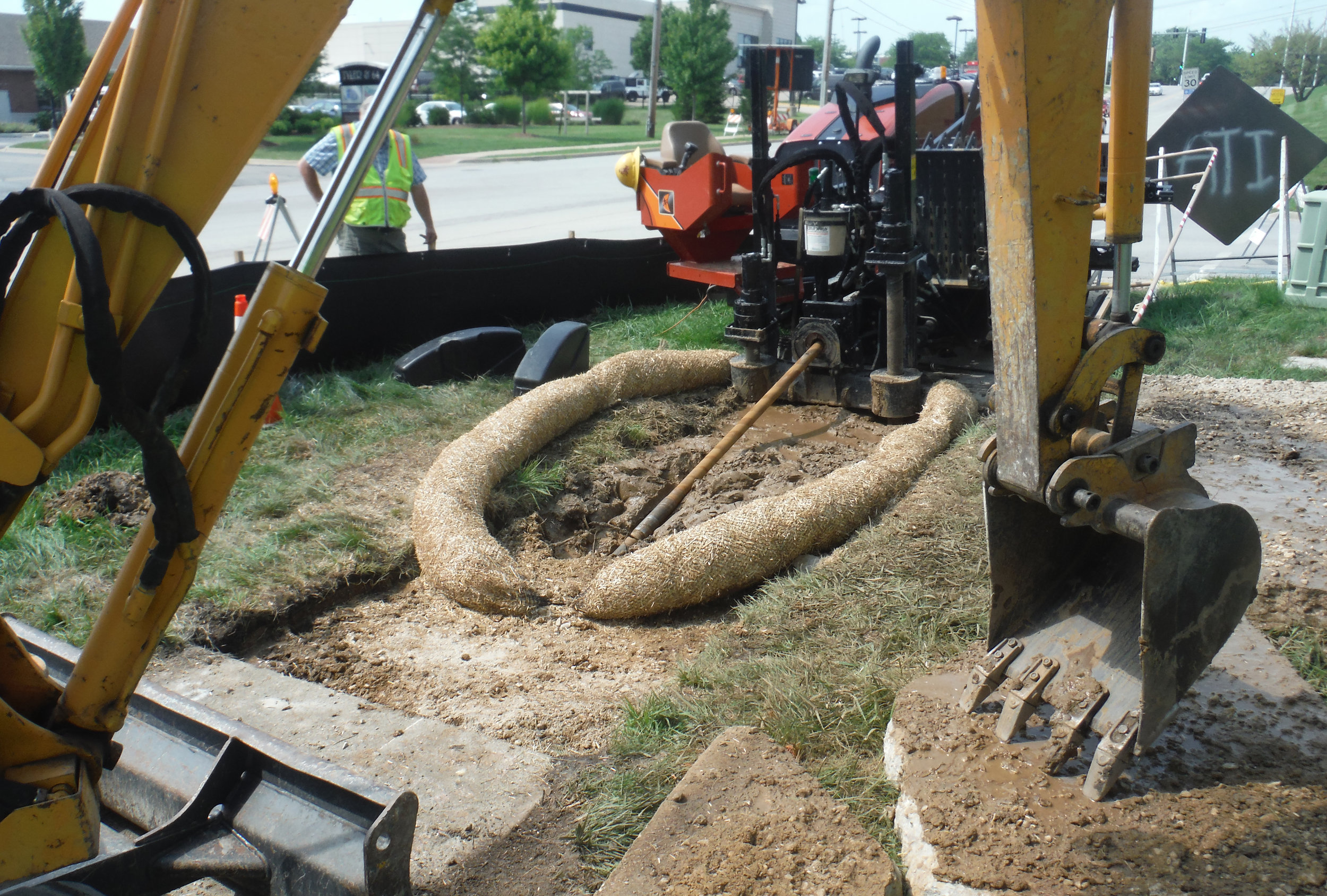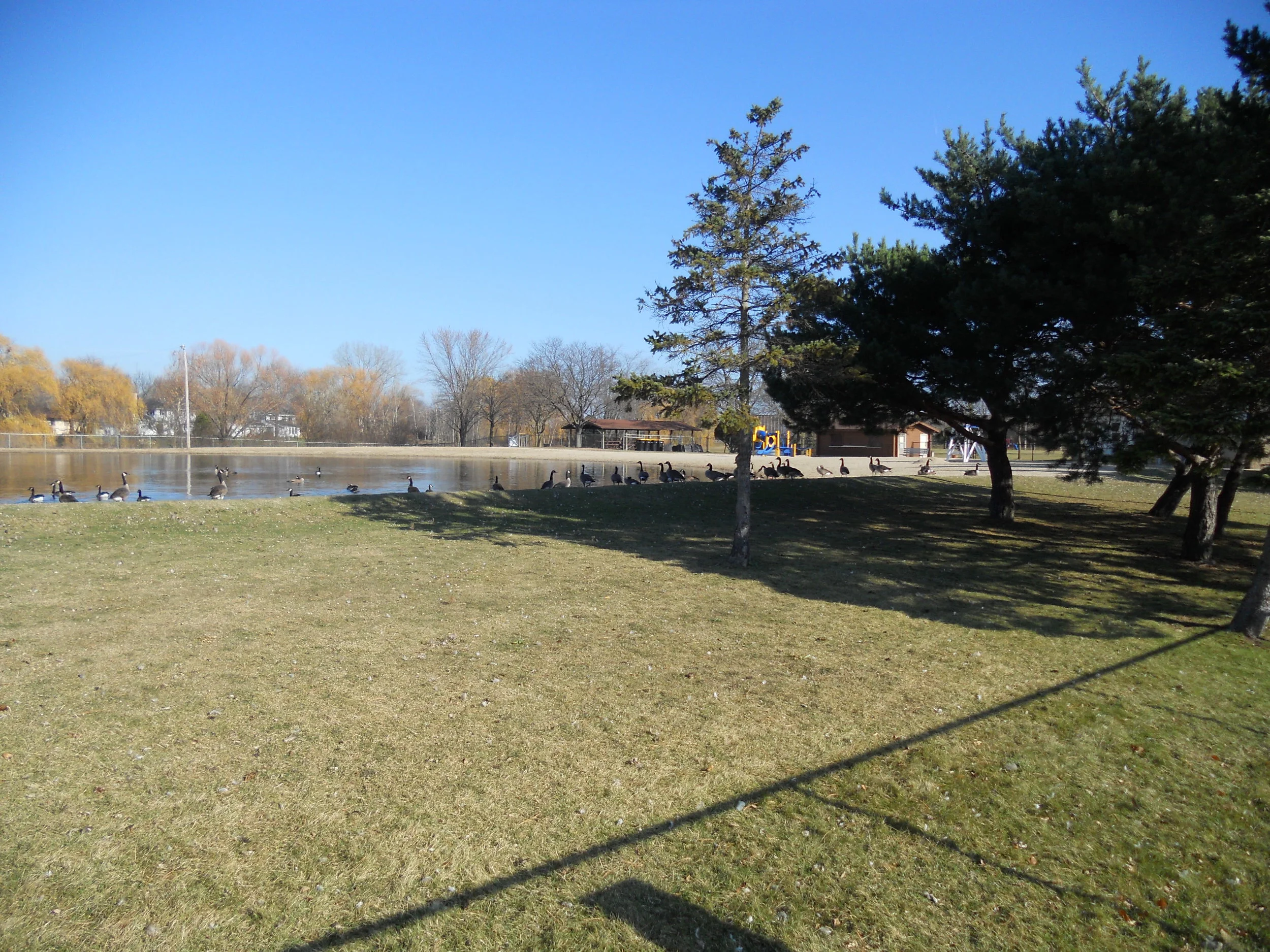SCADA systems are an important tool in the day to day operations of water & wastewater utilities. Do you have a good strategy for ensuring that your SCADA system stays up to date and provides the optimum levels of reliability, security, and efficiency? Learn how regular analysis and planning can extend the life of your SCADA system hardware and software, and how periodic planned updates can be more economical than waiting to replace critical components when a failure occurs.
The City of Peshtigo has experienced recent sewer system overflow events that have been partly due to high wet weather flows. R/M assisted in performing a smoke testing program as part of the City’s sewer system evaluation survey (SSES).
It is with great sadness that we announce the passing of Ruekert & Mielke, Inc. co-founder John H. Mielke. John passed away peacefully on Monday, January 1, 2018, at the age of 99.
Snow plowing and applying road salt was the accepted norm from the mid-20th century until just a decade or so ago. More communities are now using new technologies and methods that are ultimately cheaper, better for the environment, and most importantly provide the level of safety the public expects during winter storm events.
Some of the primary goals of CMOM programs are to protect public health, avoid basement backups, prevent sanitary sewer overflows, and protect the infrastructure investment. Municipalities place high emphasis on investigating private laterals in addition to the public sewers when they experience higher flows at their wastewater management facilities, sewers surcharge, or basements backup during wet weather events.
A TMDL affects municipalities in two main ways; through its wastewater treatment facility (WWTF) permit or through its Municipal Separate Storm Sewer System (MS4) permit.
Learn more about several innovative approaches municipalities can take in working towards TMDL compliance.
Why do some streams have TMDLs while others don’t? When monitoring or sampling results over a designated period of time reveal problems with the physical, biological and/or chemical conditions of a stream, river or lake, a waterbody can be listed on a state’s Impaired Waters List.
Earlier in 2017, R/M designed a water main replacement project for the City of St. Charles, IL, utilizing the horizontal directional drilling (HDD) installation method. Incorporating the HDD method of installation saved the City nearly 25% over an open-cut and auger alternate method of construction.
Ruekert & Mielke, Inc. was recently profiled in "US Builders Review Magazine," a publication for leading construction executives. The article focuses on R/M's growth, culture, and transition to 100% employee ownership.
As our utility systems age, the need for replacing infrastructure in tight spaces has greatly increased. At the same time, the general public has become less and less tolerant of the hassles associated with underground construction projects. The horizontal directional drilling (HDD) method of utility installation can help your agency overcome these challenges and potentially save money at the same time!
The City of Oconomowoc, with assistance from R/M, constructed joint parking lots with vegetated parking lot islands to allow storm water to flow across the lot and into bioretention areas.
An emerging technology in the world of storm water management is floating treatment islands which are floating mats or rafts which provide a growing medium for wetland plants.
The PSC proposes to require water utilities to annually mail rules for deposits, deferred payment agreements, budget billing, disconnection, and dispute procedures to all residential customers.
The City of New Berlin was faced with a difficult design challenge for a 7-block section of alley in the Buena Park neighborhood. The City wanted to take advantage of a Green Solutions grant from the Milwaukee Metropolitan Sewerage District (MMSD). The solution was a porous asphalt pavement to provide storm water storage, filtration, and conveyance.
As municipal governments continue to move towards green infrastructure, innovative uses of existing materials become increasingly important. Additionally, the need to effectively move and treat storm water runoff becomes increasingly important. Local municipalities are recognizing the importance of these two items.
In the summer of 2016, the Village of Brown Deer contacted Ruekert & Mielke, Inc. (R/M) for assistance in developing an urban forestry project that would be strong enough to meet the application needs of the DNR's Urban Forestry Grant.
It's never too early to start thinking about grant opportunities. Whether it's a project that's been on a wish list or the back-burner; the prospect of supplemental funding can never be understated.
The City of Pewaukee Water & Sewer Utility has been proactive recently in upgrading several components of their Supervisory Control and Data Acquisition (SCADA) System. By anticipating needs in advance, several smaller projects were able to be budgeted for and sequenced out over a several year period.
In recent years, many states and local municipalities have made enormous strides in reducing carbon emissions and increasing the overall sustainability of their operations and infrastructure projects. Many sustainable construction methods, which often go unnoticed, are gaining popularity due to their lower cost and big environmental benefits.
Is your SCADA System showing signs of neglect? Water and Wastewater Utilities depend on their Supervisory Control and Data Acquisition (SCADA) Systems to operate, monitor, alarm and report on the critical processes that their municipality's residents take for granted. But are you taking your SCADA System for granted too?





















